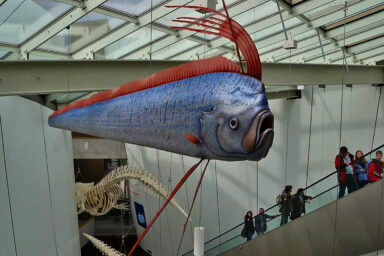Red Sea Corals’ Heat Tolerance Offers Hope for Climate Crisis
On Portland’s Streets: Anger, Fear, and a Fence That Divides ; Hygiene Theater Is a Huge Waste of Time ; and More Picks
On Portland’s Streets: Anger, Fear, and a Fence That Divides ; Hygiene Theater Is a Huge Waste of Time ; and More Picks 7/28
On Portland’s Streets: Anger, Fear, and a Fence That Divides (Gerry)
The authors write, “To the protesters, the men inside the battened down courthouse are at best thoughtless political minions, at worst murderous henchmen. To the agents inside, the demonstrators that pack the downtown each night are violent anarchists, an angry sea of humanity bent on hurting — or even killing — federal agents doing their job.”
Hygiene Theater Is a Huge Waste of Time (Bethany)
The author writes, “To some American companies and Florida men, COVID-19 is apparently a war that will be won through antimicrobial blasting, to ensure that pathogens are banished from every square inch of America’s surface area. But what if this is all just a huge waste of time? In May, the Centers for Disease Control and Prevention updated its guidelines to clarify that while COVID-19 spreads easily among speakers and sneezers in close encounters, touching a surface ‘isn’t thought to be the main way the virus spreads.’”
Photo of COVID-19 Victim in Indonesia Sparks Fascination — and Denial (Mili)
From National Geographic: “Photojournalist Joshua Irwandi shadowed hospital workers in Indonesia, taking a striking image of a plastic-wrapped body of a COVID-19 victim while making sure not to reveal distinguishing characteristics, or even gender. The image … struck a chord in the nation of 270 million people. Indonesia had been slow to fight the global pandemic, with President Joko ‘Jokowi’ Widodo touting an unproven herbal remedy in March. Some of the reactions to Irwandi’s image, which humanized the suffering from the virus, have been hostile.”
Why Hundreds of Mathematicians Are Boycotting Predictive Policing (Dana)
The author writes, “Several prominent academic mathematicians want to sever ties with police departments across the U.S., according to a letter submitted to Notices of the American Mathematical Society on June 15. The letter arrived weeks after widespread protests against police brutality, and has inspired over 1,500 other researchers to join the boycott. These mathematicians are urging fellow researchers to stop all work related to predictive policing software, which broadly includes any data analytics tools that use historical data to help forecast future crime, potential offenders, and victims. …‘Given the structural racism and brutality in U.S. policing, we do not believe that mathematicians should be collaborating with police departments in this manner,’ the authors write in the letter.”
Two New Studies Indicate 9/11 First Responders at Higher Risk of Dementia (Russ)
From the New York Daily News: “In the 19 years since Sept. 11, 2001, the mantra among surviving World Trade Center first responders was always the same: Never forget. Now some of those heroes who spent weeks digging through the toxic rubble of the twin towers are at risk of losing their memories to dementia linked to their time working at Ground Zero, according to a pair of new studies by Stony Brook University researchers.”
Britain’s Newly Discovered Ancient Sites (Dana)
The author writes, “In the past few months, archaeologists have pored over hi-tech Lidar (Light Detection and Ranging) scans to discover a whole new timeline of human occupation across this landscape, from prehistoric burial mounds to hidden Roman roads and, perhaps most intriguingly, hundreds of previously unsuspected medieval farmsteads and settlements.”


